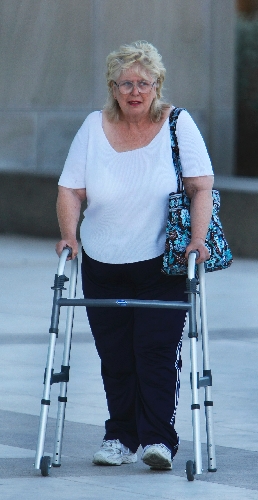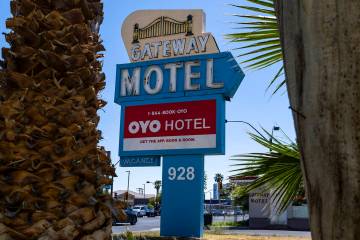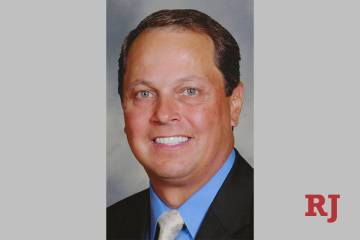Prosecutor tells jury ex-lender tricked investors
Former hard-money lender Connie Farris tricked investors into giving her money for five nonexistent loans, Assistant U.S. Attorney Brian Pugh told a jury in opening statements Wednesday as a five-week fraud trial got under way.
Assistant federal public defender Rebecca Rosenstein argued that employees will blame Farris for misdeeds at Global Express Capital Corp., though the employees were in charge of its daily operations.
Farris was indicted for 63 counts of wire fraud, but the prosecution has indicated that it wants to dismiss many of the counts. In some instances, the mostly elderly victims have died, their health is too poor for them to appear or their memories have deteriorated, according to the prosecution.
Like other hard-money lenders, Global Express solicited investments from individuals for short-term loans secured by real estate. The loans typically were made to developers for terms of one year and paid double-digit interest rates. Investors drew assurance from their ability to foreclose on the real estate if the borrower defaulted.
The loans were similar to home mortgage loans but the investors were the bank, Pugh said.
A federal judge appointed a receiver in December 2003 to take over Global Express and several affiliated businesses, and receiver James Donell found 600 investors with claims totaling $44 million but only $15 million in assets. Donell, however, started getting calls from investors about four loans for which he had no documentation, Pugh explained.
Ultimately, five nonexistent loan deals totaling $2.8 million were identified, Pugh said.
Farris eventually admitted to Donell that the loans were never closed, Pugh said.
"Connie Farris defrauded investors by selling investments that did not even exist," Pugh said. The loans "never closed and that's why they didn't exist."
Farris misled investors into thinking their money was protected by claims on real estate, Pugh said. A loan servicing company was specified to make interest payments, but Farris' company directly mailed interest payments to investors, the prosecutor said.
Farris diverted money from its intended purpose and spent more than $500,000 on construction of a multimillion-dollar custom home for herself, Pugh said.
In addition, she provided money to her husband, Rex Farris, to use in an unsuccessful attempt to establish businesses in Russia, Pugh said. An individual close to Global Express said Rex Farris intended to open franchised fast food restaurants.
Several pieces of evidence indicated Farris had criminal intent and knew about the crimes, including e-mails and her signature on interest checks, Pugh said.
Defense attorney Rosenstein, however, blamed Farris' employees, who profited through wages and commissions.
"These employees had day-to-day contact with investors," Rosenstein said. Employees signed many of the interest checks, she said.
Rosenstein predicted that employees will point their fingers at Farris. " 'Connie Farris told me to do it,' they will say," Rosenstein predicted. " 'It's Connie Farris' fault.' "
She attacked the credibility of another potential prosecution witness, developer Robert Rippe.
"What you will hear is that Mr. Rippe made money hand over fist," Rosenstein said. "When his ship was sinking, he brought Global down with him."
Farris didn't respond to a request for comment while using a walker to walk toward the courthouse.
Farris, who complains about ailments, sat in an inclined hospital bed during the trial.
During a recess, Farris was rolled out of the courtroom in a wheelchair, smiled and exchanged pleasantries with two former investors.
The prosecution called investor Fred Arnold, a bar manager at the South Point, as its first witness. Arnold recalled how he was unable to get documents or return of his money from one of two loans that never closed.
Contact reporter John G. Edwards at jedwards@reviewjournal.com or 702-383-0420.




























